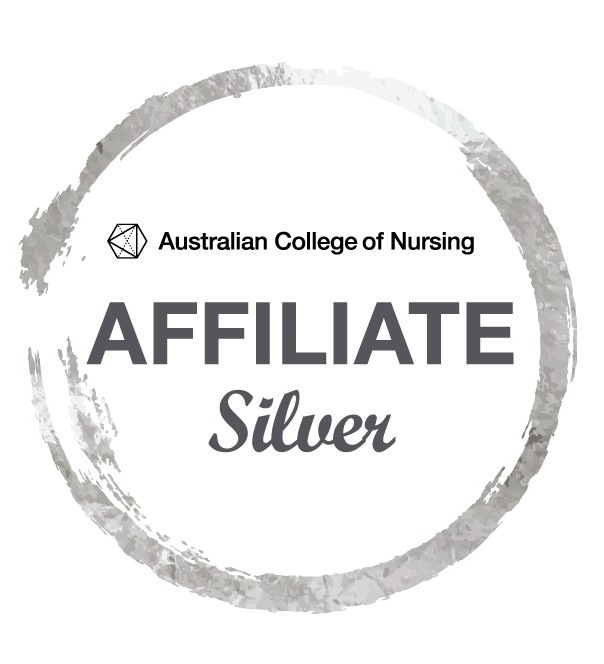Study Nursing and Midwifery
Zahra Hussein, Bachelor of Nursing (Pre-registration) and international student
Why study Nursing and Midwifery at Flinders?
A life-changing career.
Flinders is nurturing a passionate team of future nurses and midwives to not only be exceptional, but do exceptional things. At Flinders, we offer fully accredited Nursing and Midwifery courses, equipping you with the clinical skills to provide care when it's needed the most.
When you study at Flinders, you'll study an innovative curriculum: our Nursing and Midwifery degrees are developed in collaboration with industry and emphasise evidence-based practice — meaning that you'll gain future-focused knowledge and skills that meet the needs of the workforce, informed by the latest nursing and midwifery research. You'll learn from the best: our teaching staff are acclaimed academics and researchers, with decades of expertise in midwifery and nursing roles, and have contributed to current practice guidelines and improved outcomes for patients, families and carers.
You'll receive immersive, hands-on education in our state-of-the-art facilities, including our Nursing and Midwifery simulation labs, where you'll practice clinical skills such as how to administer medications, take blood samples, treat a patient in cardiac arrest, and support a woman to give birth on hi-fidelity manikins. Plus, you'll build your confidence with placement opportunities in a range of clinical environments, such as hospitals, private clinics, specialised care facilities, community health clinics, and more.
If you're ready to take your career to the next level, Flinders have a range of postgraduate Nursing and Midwifery degrees in areas such as nurse practitioner, emergency, mental health, diabetes management and endorsed midwife, that'll help you step up into professional, specialist or leadership roles.
Prevent, treat, cure and care at Flinders University. Explore your study options at Bedford Park, our rural and remote campuses, online and at our City Campus from 2025.
Courses available in Nursing and Midwifery
- Doctor of Philosophy
- Doctor of Philosophy (PhD) and Master of Business Administration (MBA)
- Doctor of Philosophy (PhD) by Prior Published Work
- Doctor of Philosophy (PhD) in Health Emergencies and Health Security
- Doctor of Philosophy (PhD) in Palliative Care and End of Life
- Master of Health and Clinical Research
- Master of Science
Up to 80% off fees due to Government subsidies*
Explore a range of postgraduate Nursing courses with up to 80% off fees, from Mental Health Nursing to Child and Family Health Nursing to Emergency Nursing to the Master of Nursing, plus more.
*Government subsidies enable Flinders to offer domestic applicants a reduction of up to 80% off full course fees through Commonwealth Support Places. Not all courses. Offer subject to change.
Financial Support While You’re On Placement?

You could be eligible for the Commonwealth Prac Payment — up to $319.5 per week.
Begins January 2025 | Teaching, Social Work, Nursing and Midwifery
STUDY FOR TOMORROW
WITHOUT MISSING TODAY.
Flexibility from
the start
Practical and constantly connected
Engaging, above-standard learning
Supported on
every level
No.1 in SA
in Nursing for learner engagement
(The Good Universities Guide 2024 (undergraduate), public SA-founded universities only)
Five stars
in Nursing for learner engagement
(The Good Universities Guide 2024 (undergraduate))
⬆︎
21.6%
Employment Growth, Midwives.
(National Skills Commission, 2021 Employment projections for the five years to 2026).
Connect with Industry Leaders
We enjoy partnerships with many industry organisations including local health networks, aged care service providers, and public and private hospitals.
Almost 1000 hours of work placement are built into both the undergraduate nursing and midwifery degrees with rewarding opportunities to make industry connections, build practical skills, and experience a variety of settings.
The relationships we have with our students and graduates are highly supportive and long-lasting, meaning access to that network will continue long into your career.
Our Healthcare Simulation Centre allows nursing and midwifery students to develop invaluable hands-on practical skills and work together in a real-world multidisciplinary environment.
The high-tech simulation lab mirrors real-life situations to prepare you for work in hospitals, surgeries and healthcare settings.
Our lab features patient care manikins that simulate health conditions such as cardiac arrest and all the stages of a woman giving birth. The laboratory is also home to baby manikins and simulated neonatal intensive care equipment.
This intensive practical learning allows you to develop clinical reasoning skills through case-based learning.
Start your life-changing career in Nursing and Midwifery.
Watch a webinar to explore Health at Flinders. Learn more about career pathways, study options, topics, placement opportunities and more.
Explore exciting career opportunities Nursing and Midwifery. Start your exceptional career today.
Are you ready to level up your nursing career? Find out more about postgraduate study and what that means for you.
Curious what it's like to study nursing and midwifery at Flinders? Nursing student Chelsea explains.
EXPLORE
OTHER CAREERS
IN HEALTH
Take your career to the next level. Study Postgraduate Nursing
Our postgraduate speciality courses are designed for health professionals and those looking to progress into specialist and/or leadership roles in the health field.
- Flexible study: full-time, part-time, 100% online
- Practical delivery and assessment
- Globally recognised by industry
- Personalised support
- Clinical experience opportunities
- Pathways to a career in research

Frequently asked questions
Nursing and midwifery are both extremely rewarding professions with varied career outcomes. Some midwives are also nurses and some nurses are also midwives. But they are different professions and require different sets of skills, training and experience.
Nursing offers diverse opportunities in many areas including clinical, management, research and education.
Midwifery focuses on the health and wellbeing of women before, during and after childbirth. It’s a broad and varied role, like nursing, that has many career prospects depending on your interests.
A Registered Nurse (RN) undertakes a three-year University Bachelor of Nursing degree in comparison to an enrolled nurse who completes a Diploma of Nursing via the Vocational Education Training sector which is 2 years duration.
Both an RN and EN provide direct patient care. The scope of practice for an RN is more extensive than an EN and an RN is responsible and accountable for all care delivered that is delegated to an Enrolled Nurse.
Preregistration means the period during which a Bachelor of Nursing student is undertaking a course of study leading to registration with the Nursing and Midwifery Board of Australia
Our flexible study options facilitate part time options, and some topics are offered either face to face or online. On campus attendance is not mandatory, with the exception of clinical intensives and placements.
Yes you need to be on campus for practicals (intensives) which are 4 days in the Laboratory prior to undertaking placement.
Health is a growing industry overall in Australia. According to the National Skills Commission (2022), midwives will experience a 21.6% increase in jobs growth, while nursing is set to experience a 13.9% jobs boost.
The 2022 ATAR for Midwifery was 96.65 and the 2022 ATAR for Nursing was 70.40.
Yes. You will complete a range of field placements at public and private hospitals across metropolitan and rural areas. Throughout the degree you will experience clinical placements in many areas of midwifery practice such as antenatal, birthing, postnatal, gynaecology, community midwifery, and neonatal special care. These will take place across metropolitan, regional and rural hospitals and health services in South Australia.
Yes. Midwifery students are required to follow women throughout their antenatal, birth, and postnatal journey. Pre-registration students will have a minimum of 15 CoCE experiences throughout the degree, whereas post-registration (registered nurse) students will have a minimum of 10 CoCE experiences.
No, you will not need to be on call for placements. Placements blocks range between 1 – 6 weeks and are scheduled at different times throughout the year. You will be rostered across all shifts over a 7-day week roster.
Yes, you will be required to be on call to successfully complete your CoCE. You will need to be available when the women are giving birth, which could be at any time, day or night. It is a requirement that you are available to be on call for the labour and birth for these women, equivalent to at least five times a year for each year of your degree.
Yes. Placements for nursing may occur at any time of the year and will include shift work (including night shift and public holidays) across a seven-day week roster. It’s recommended that you do not book holidays or make travel arrangements until your placement has been confirmed on InPlace. Placements occur in a full-time block format attended over several weeks. Placement topics in the Bachelor of Nursing program range from 2 to 8 weeks in length.
Placements will be undertaken across a range of locations, where care is provided to patients / consumers / clients / residents across the life span. This includes aged care, rural and remote and acute care locations such as hospitals.
If you are studying full-time (18 units per semester), you would normally need to spend about two-and-a-half to three days on campus to attend compulsory classes such as laboratories, tutorials, and workshops.
Yes, students undertaking degrees with a mandatory placement can now receive financial support through the Commonwealth Prac Payment (CPP), introduced by the Australian Government.
No, nursing is not run within the normal university semester. Students are expected to be available all year round.
A driver's licence is essential as public transport is not always available for shift work, CoCE appointments and rural placements.
Yes, upon completion of the midwifery program you will be able to register as a midwife with the Australian Health Practitioner Regulation Agency (AHPRA). Upon the completion of the nursing program, you can apply to AHPRA for official registration as a Registered Nurse.
Hear from our students

“
Studying nursing at Flinders University was a fulfilling experience.
The phenomenal teaching staff were committed to teaching up-to-date clinical skills which prepared me seamlessly for my role as a Registered Nurse at the Royal Adelaide Hospital. They also spent considerable time getting to know us all individually.
I would highly recommend Flinders to anyone considering a nursing career.
Jacob, Bachelor of Nursing, 2023
”

“
I thoroughly enjoy studying midwifery at Flinders! The teaching team are amazing and full of incredible knowledge and experience. Learning from high-calibre midwives has greatly enhanced my professional development.
The midwifery program is both supportive and fulfilling, and studying alongside brilliant, like-minded students has allowed me to build lifelong friendships, both within the university and in practical settings!
Georgia Lienert, Second Year Student, Bachelor of Midwifery, 2024
”
I am an
International Student
Australia or New Zealand.
I am a
Domestic Student
I'm an Australian Permanent Resident
(including Humanitarian Visa holders).
![]()
Sturt Rd, Bedford Park
South Australia 5042
South Australia | Northern Territory
Global | Online
CRICOS Provider: 00114A TEQSA Provider ID: PRV12097 TEQSA category: Australian University















